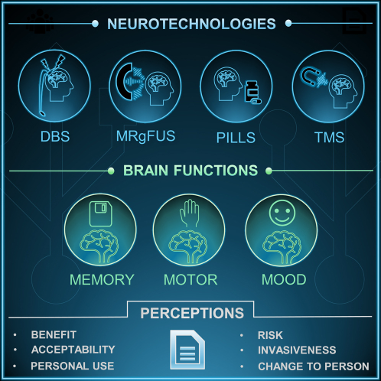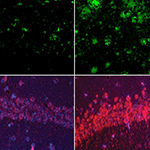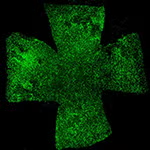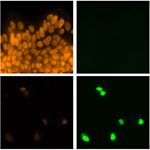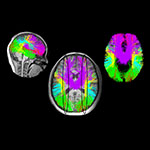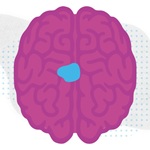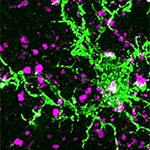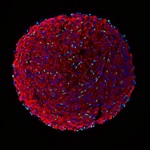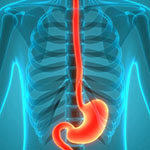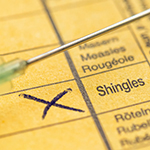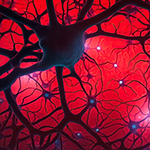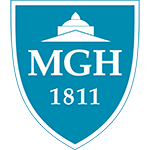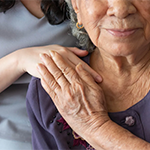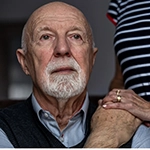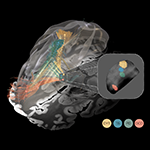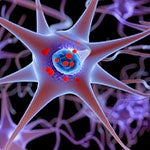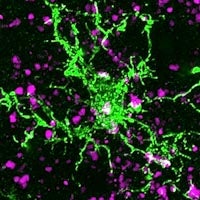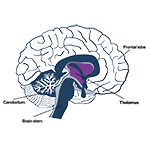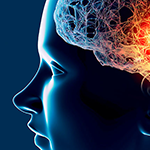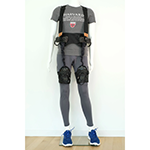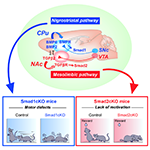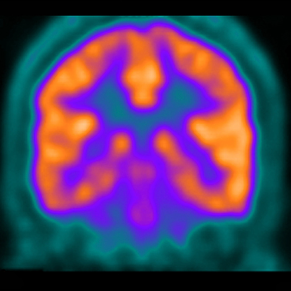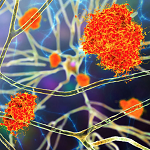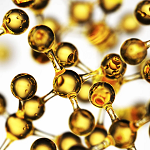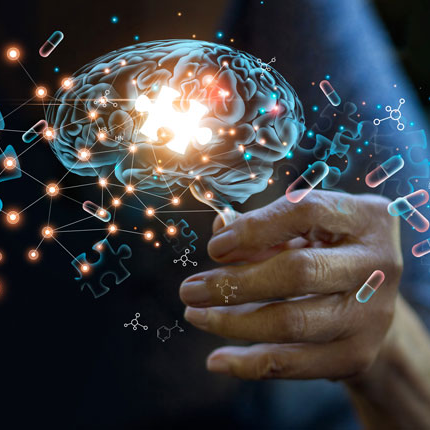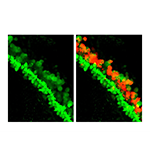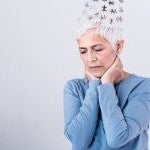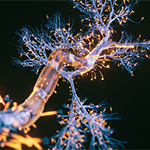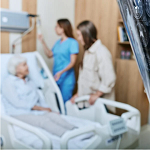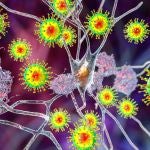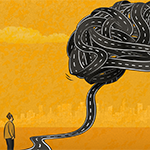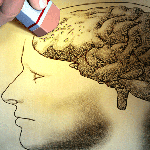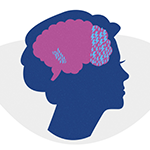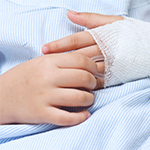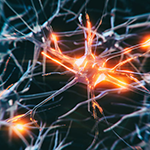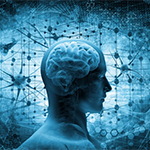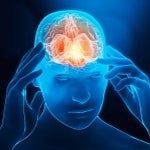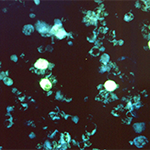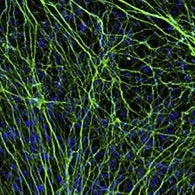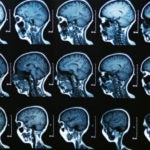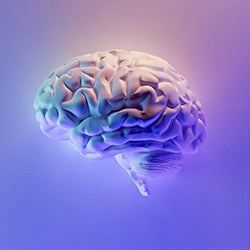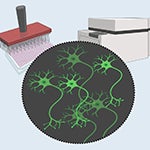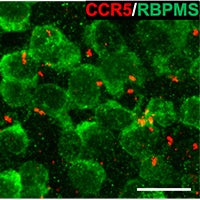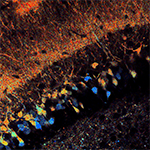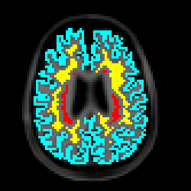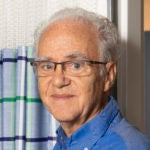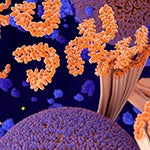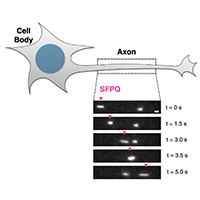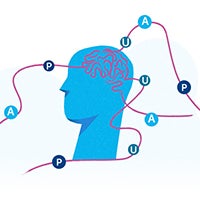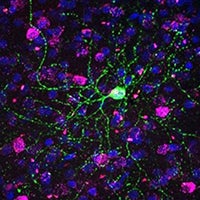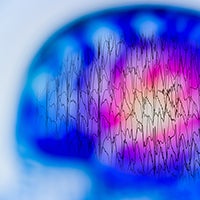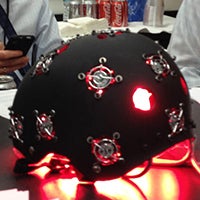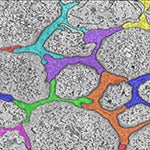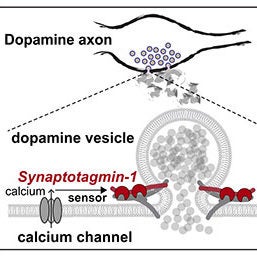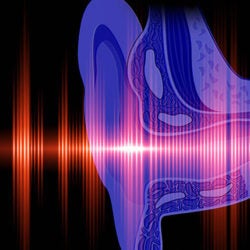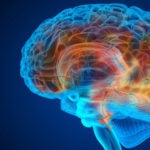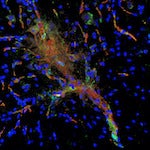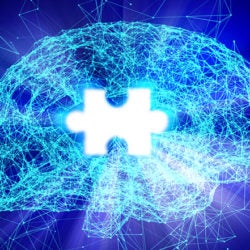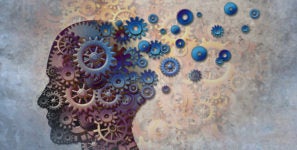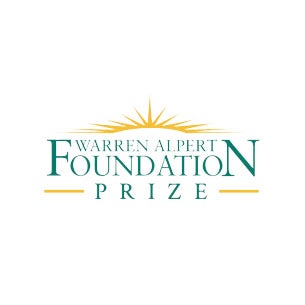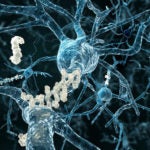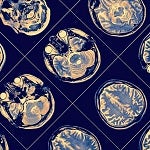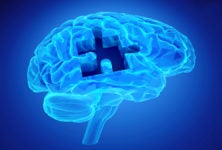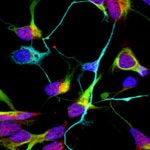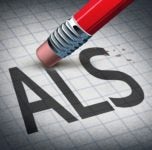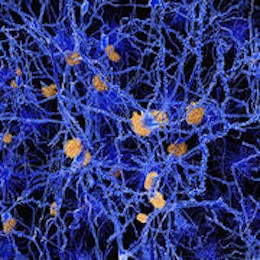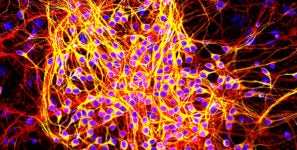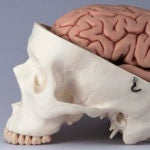Neuro Topics - Neurodegenerative Disease
SEARCH OTHER RESEARCH AREAS
October 31, 2025
Rémy Furrer and Amanda Merner share the results of a survey of 1,052 U.S. adults, which found that neurotechnologies targeting motor symptoms were viewed as more acceptable and beneficial than those for mood or memory symptoms. Non-surgical options like transcranial magnetic stimulation were generally preferred over invasive ones such as deep brain stimulation.
Original article in: Device >
September 4, 2025
New research from Dong D. Wang, and colleagues. First author Yuxi Liu finds that people at the highest genetic risk for Alzheimer’s disease who followed a Mediterranean diet — rich in vegetables, fruits, nuts, whole grains, and low in red and processed meats — showed slower cognitive decline as well as a greater reduction in dementia risk than those at lower genetic risk.
Original article in: Nature Medicine >
August 21, 2025
A low-oxygen environment — similar to the thin air found at Mount Everest base camp — can protect the brain and restore movement in mice with a Parkinson’s-like disease, according to a new study led by scientists at Harvard Medical School, Massachusetts General Hospital, and the Broad Institute of MIT and Harvard.
Original article in: Nature Neuroscience >
August 21, 2025
New research from Bruce A. Yanker and colleagues, first author Liviu Aron, shows for the first time that lithium is naturally present in the brain, shields it from neurodegeneration, and maintains the normal function of all major brain cell types. The findings are based on a series of experiments in mice and on analyses of human brain tissue and blood samples from individuals in various stages of cognitive health.
Original article in: Nature >
July 3, 2025
Connie Cepko provides an overview of her lab’s longstanding work developing gene therapies for ocular diseases using mouse and rat models. She shares images from studies on retinitis pigmentosa, the most common cause of inherited retinal degeneration worldwide—showing, for instance, how gene therapy can combat oxidation to prolong the survival of cone photoreceptors in the mouse retina, as well as preserve the retinal pigment epithelium.
June 18, 2025
New research from Jenny M. Tam, Soumya Raychaudhuri, George M. Church and colleagues, co-first authors Songlei Liu, Li Li, Fan Zhang, and Mariana Garcia-Corral pioneers a novel method of creating microglia, immune cells in the brain and spinal cord, with “strong functional similarities” to human microglia in four days, as opposed to the 35 days it takes to obtain less fine-tuned cells in a conventional stem-cell differentiation process.
Original article in: Nature Communications >
May 28, 2025
A new study from Xiang Gao (Fudan University), Alberto Ascherio (Harvard School of Public Health), and colleagues, first author Peilu Wang (Fudan University) finds that people who consume higher servings of ultra-processed foods are more likely to show early signs of Parkinson's.
Original article in: Neurology >
May 28, 2025
Moyamoya disease is a rare, progressive condition that narrows the brain’s blood vessels, leading to an increased risk of stroke and other neurological conditions. New research from Laura L. Lehman (BCH) and colleagues, first author Banu Ahtam sheds light on the relationship between brain injury and symptoms in children with moyamoya, potentially impacting how doctors approach treating children with asymptomatic moyamoya disease.
Original article in: Journal of Pediatrics >
May 1, 2025
A new study from Vijay Kuchroo and colleagues, co-first authors Kimitoshi Kimura and Ayshwarya Subramanian, raises the odds that a strategy already successful against some cancers may be deployed against Alzheimer’s. The research, which highlights the role of an immune system “checkpoint” molecule, showed improved cognition in tests with mice.
Original article in: Nature >
April 17, 2025
Seventeen modifiable factors have been identified that can lower people’s risk of age-related brain diseases such as stroke, dementia, and late-life depression, according to researchers at Harvard-affiliated Mass General Brigham. The study found a reduced risk of all three conditions by modifying any one of the 17 factors.
Original article in: Journal of Neurology, Neurosurgery, and Psychiatry >
April 17, 2025
New research from Eric Vallabh Minikel, Sonia M. Vallabh, David R. Liu and colleagues, co-first authors Meirui An and Jessie R. Davis, provides hope that prion disease — a handful of rare, invariably fatal disorders caused by misfolded proteins in the brain — may, in the not-too-distant future, have a treatment if not a cure.
Original article in: Nature Medicine >
April 1, 2025
Pediatric high-grade gliomas are aggressive brain tumors with a poor prognosis. New research from Mariela Filbin and colleagues, joint first authors Lisa Mayr, Sina Neyazi, Kallen Schwark, and Maria Trissal suggests that platelet-derived growth factor receptor alpha (PDGFRA) could be a potential therapeutic target and provides the first real-world clinical data supporting the use of a PDGFRA inhibitor to treat certain patients with these tumors.
Original article in: Cell >
February 4, 2025
A new study from Steven A. McCarroll, Sabina Berretta, and colleagues, co-first authors Robert E. Handsaker and Seva Kashin, shows how a mutation in the Huntingtin (HTT) gene expands over decades and becomes rapidly toxic later in life.
Original article in: Cell >
November 22, 2024
New research from Christopher Walsh and colleagues, co-first authors Eduardo A Maury, Attila Jones, and Vladimir Seplyarskiy, suggests that distinctive patterns of non-inherited (somatic) mutations are important contributors to schizophrenia. These mutations appear to have occurred as the brain was forming and affect just a portion of its neurons.
Original article in: Science >
November 22, 2024
New research from David Corey and colleagues, first author Maryna V Ivanchenko, delivered a corrected version of the faulty gene that causes Usher syndrome — PCDH15 — and was able to restore hearing in mouse models and also showed potential in retinal organoids and nonhuman primates for improving vision.
Original article in: Journal of Clinical Investigation >
October 11, 2024
New research from Molly P. Jarman and colleagues, first author Alexander J. Ordoobad, finds that dementia is more frequently diagnosed within one year of a fall compared to other types of injuries.
Original article in: JAMA Network Open >
October 11, 2024
A new study from Aaron Baggish and colleagues, first author Rachel Grashow, of nearly 2,000 former NFL players shows that about one-third believe they have chronic traumatic encephalopathy (CTE), a neuropathological condition linked to repeated head trauma that can only be diagnosed through a postmortem examination of the brain.
Original article in: JAMA Neurology >
September 25, 2024
New research from From Lee Rubin and colleagues, first author Feodor D. Price has pioneered a groundbreaking method for generating large numbers of adult skeletal-muscle satellite cells, or "muscle stem cells", in vitro. This development could help speed up our understanding and treatment of a range of skeletal muscular disorders, including muscular dystrophy (MD) and (ALS).
Original article in: Nature Biotechnology >
September 13, 2024
A new study from Trisha S. Pasricha and Subhash Kulkarni, first author Jocelyn Chang (Tufts) finds that the risk of developing Parkinson’s disease was 76 percent higher among those with damage to the lining of their upper gastrointestinal tract than among those without.
Original article in: JAMA Open Network >
September 13, 2024
New research in lab models from Stephen Gomperts and colleagues, first author K. N. Rose, indicates that low doses of carbon monoxide — comparable to that experienced by smokers — protected against neurodegeneration and prevented the accumulation of a key Parkinson’s-associated protein in the brain.
Original article in: NPJ Parkinson's Disease >
August 29, 2024
New research from Sharon G Curhan and colleagues (first author Tian-Shin Yeh) has found that an episode of shingles is associated with about a 20 percent higher long-term risk of subjective cognitive decline, one of the earliest noticeable symptoms of Alzheimer’s disease and related dementias.
Original article in: Alzheimer's Research and Therapy >
August 29, 2024
Technological advances allow scientists to more rapidly create in vitro models of Parkinson’s disease using stem cells, in ways that could provide more personalized diagnostic and treatment methods. From Vikram Khurana and colleagues, co-first authors Isabel Lam and Alain Ndayisaba.
Original article in: Neuron >
August 6, 2024
David Perez and colleagues (first authors Christiana Westlin and Andrew J Guthrie) used machine learning algorithms to compare the brains of patients with functional neurological disorder (FND) and healthy subjects or participants with psychiatric disorders that do not have FND, They found that structural brain MRI has the potential to be a clinically useful tool for diagnosing FND.
Original article in: Journal of Neurology, Neurosurgery and Psychiatry >
July 18, 2024
New research suggests intensive diet and lifestyle changes may not only forestall cognitive decline related to Alzheimer’s disease but possibly bring some improvement to those in early stages.
From Steven Arnold, Rudolph Tanzi, and colleagues. Read more at the Harvard Gazette.
Original article in: Alzheimer's Research & Therapy >
July 3, 2024
Chronic loneliness was associated with higher stroke risk independent of depressive symptoms or social isolation. Addressing loneliness may have an important role in stroke prevention, and repeated assessments of loneliness over time may help identify those particularly at risk.
Original article in: eClinicalMedicine >
July 3, 2024
Using imaging reports to back up their findings, researchers have concluded that reports from patients and their partners about cognitive decline can be an early indicator of an accumulation of tau tangles, a hallmark of Alzheimer’s disease.
Original article in: Neurology >
May 21, 2024
HMS News profiles the work of Chirag Patel, others at Harvard, and the Human Exposome Project—which aims to discover the role of various environmental exposures in human disease and health. One such avenue of inquiry showing promise is using AI to help analyze how a lifetime of environmental exposures affects the onset and progression of complex neurological diseases such as Alzheimer's.
May 9, 2024
New research uncovers how inflammation damages excitatory synapses in an experimental model of MS. While there is a constant turnover of synapses in the healthy brain, inflammation accelerates this turnover so that synapses were gained and lost at higher rates. This widespread instability impacts the entire neuron and leading to important changes in the incoming inputs to individual neurons.
Original article in: Brain, Behavior, and Immunity >
April 15, 2024
Deep brain stimulation is a powerful therapeutic approach for severe brain circuit dysfunctions that can effectively alleviate the heterogeneous symptoms characteristic of Parkinson’s disease, dystonia, Tourette’s syndrome, and obsessive-compulsive disorder. Barbara Hollunder (Lab of Andreas Horn) explains what invasive brain stimulation can teach us about the circuit architecture of the brain’s dysfunction — and which commonalities it shares with a prism.
Original article in: Nature Neuroscience >
March 27, 2024
A simple skin biopsy test has shown a high accuracy rate in detecting an abnormal form of alpha-synuclein, the pathological hallmark of Parkinson’s disease, according to neurologists at Beth Israel Deaconess Medical Center.
Original article in: American Medical Association >
March 14, 2024
New research From Beth Stevens and colleagues, first author Dan Wilton, shows how the process of Huntington’s disease begins well before symptoms appear — and shows that in mice, the process can be blocked to prevent cognitive problems related to Huntington’s Disease.
Original article in: Nature Medicine >
March 14, 2024
Brain tissue samples from people with schizophrenia and from older adults have strikingly similar sets of changes in gene activity in two types of brain cells, suggesting a common biological basis for the cognitive impairment often seen in people with schizophrenia and in older people, according to new research from Steve McCarroll, Sabina Berretta, and colleagues. First author Emi Ling.
Original article in: Nature >
February 23, 2024
New research from Joseph Giacino and colleagues may upend the widely held view of traumatic brain injury as a permanently debilitating condition. The findings indicate that electrical stimulation can reawaken quiescent brain circuitry, leading to functional improvements that have the potential to restore work and social activities to patients’ lives.
Original article in: Nature Medicine >
February 16, 2024
One cell, the “midget retinal ganglion cell,” carries the vast majority of visual information from the eye to the brain in humans. It has been thought to be a primate-specific innovation, making it impossible to study in accessible model systems. Josh Sanes shares how, using molecular comparison of retinas from 17 vertebrate species, researchers from his team and that of former postdoc Karthik Shekhar, were able to trace back through evolution and identify mouse orthologues of midget cells.
Original article in: Nature >
February 2, 2024
Harvard Medical School researchers at Brigham and Women’s Hospital and the Wyss Institute have developed a molecular test that successfully detected and quantified telltale protein clumps in tissue and fluid samples obtained from patients with Parkinson’s disease.
Original article in: PNAS >
February 2, 2024
Researchers from Harvard and Boston University have used a soft, wearable robot to help a person living with Parkinson’s walk without freezing. When individuals with Parkinson’s disease freeze, they suddenly lose the ability to move their feet, often mid-stride, resulting in a series of staccato stutter steps that get shorter until the person stops altogether. These episodes are one of the biggest contributors to falls among people living with Parkinson’s disease.
Original article in: Nature Medicine >
December 7, 2023
By focusing on a list of 12 steps covering modifiable behaviors, adults can greatly reduce their risk of developing brain diseases such as dementia and stroke, according to a new study featured in the Harvard Gazette. From the team of Thomas Littlejohns and colleagues, first author Sanjula D. Singh.
Original article in: Frontiers in Neurology >
November 13, 2023
HMS News article on new research from the lab of Beth Stevens, first author Dan Wilton, showing how the process of Huntington’s disease begins well before symptoms appear — and revealing that in mice, the process can be blocked to prevent cognitive problems thought to be relevant in Huntington’s disease, studied with visual discrimination learning and cognitive flexibility tasks.
Original article in: Nature Medicine >
October 6, 2023
Akiko Terauchi and Hisashi Umemori share new research that identified the pathway-specific signals that establish functionally segregated dopaminergic synaptic connections in the mammalian brain. The findings may provide strategies to treat pathway-specific disease symptoms in diseases like Parkinson's disease, schizophrenia, and depression, by targeting the pathway-specific molecular signals.
Original article in: Cell >
September 27, 2023
HMS News article on new research from Ross Zafonte and colleagues, first author Saef Izzy, finding that people who sustain a brain injury have an increased risk of developing chronic cardiovascular disease than people without a brain injury.
Original article in: The Lancet Neurology >
September 13, 2023
Harvard Gazette article on new research from Tracy Young-Pearse and colleagues using stem cells from patients with Alzheimer’s. They studied the disease risk gene SORL1 and found that loss of normal SORL1 function leads to a reduction in two other key proteins known to be involved in Alzheimer’s -- providing a mechanistic link between strong genetic risk factors.
Original article in: Cell Reports >
August 9, 2023
HMS News article on new research from Francisco Quintana and colleagues, first author, Liliana M. Sanmarco, designing a probiotic suppressing autoimmunity in the mouse brain, a condition that occurs when the immune system attacks the cells of the central nervous system. This technique offers a more precise way to target brain inflammation and minimizes negative side effects when compared with standard therapies.
Original article in: Nature >
June 30, 2023
Harvard Gazette article on new research from, Alberto Ascherio, Merit E Cudkowicz, and colleagues, first author Kjetil Bjornevik, finding that consuming omega-3 fatty acids — particularly alpha-linolenic acid (ALA), a nutrient found in foods including flaxseeds, walnuts, and chia, canola, and soybean oils — may help slow the progression of disease in patients with amyotrophic lateral sclerosis (ALS).
Original article in: Neurology >
May 25, 2023
HMS News article on new research from Joseph Arboleda-Velasquez, Yakeel Quiroz, and colleagues. They studied the extraordinary case of a patient with strong genetic predisposition for early-onset Alzheimer’s disease who remained cognitively intact more than two decades beyond the expected age of memory impairment. This led to the discovery of a protective variant, a pathway for ‘resilience’ to dementia, and the identification of a brain region to target with therapies.
Original article in: Nature Medicine >
April 25, 2023
Loss of the inner ear sensory cells, the hair cells, is considered one of the most common causes of hearing loss that is generally permanent. Using single-cell RNAseq, advanced imaging, electrophysiology, and lineage tracing, Yizhou Quan, Zheng-Yi Chen, and colleagues identified a cocktail of drug-like molecules that effectively reprograms fully mature wildtype supporting cells for hair cell regeneration, representing a step forward for hearing restoration by HC regeneration.
Original article in: PNAS >
April 20, 2023
Harvard Gazette article on new research from Marc G. Weisskopf and colleagues, first author Elissa H. Wilker, finding consistent evidence associating fine particulate air pollutants and cognitive decline.
Original article in: BMJ >
March 31, 2023
HMS News article on new research from Sharon K Inouye and colleagues suggesting that delirium — the most common postoperative complication in older adults — is associated with a 40 percent faster rate of cognitive decline in those who develop delirium over those who do not.
Original article in: JAMA Internal Medicine >
March 31, 2023
HMS News on a new study from Isaac Chiu, Judy Lieberman, and colleagues, co-first authors Dylan V. Neel and Himanish Basu, suggesting that inflammatory proteins in innate immune system may damage neurons and could lead to ALS.
Original article in: Neuron >
March 9, 2023
Boston Children's Hospital Answers article on new research from Siddharth Srivastava, Annapurna Poduri, and colleagues confirming a previous study finding that about 1 in 4 children with cerebral palsy (CP) who had DNA testing had genetic variants likely to have caused or contributed to their condition.
Original article in: JAMA Neurology >
March 3, 2023
Harvard Gazette article on new research from Hyungsoon Im, Sudeshna Das, and first author Matthew Leming. Using a new deep-learning model trained on tens of thousands of routine brain scans, and they spotted disease risk with 90% accuracy.
Original article in: PLoS One >
February 24, 2023
HMS News article on new research from Aaron Baggish and the Football Players Health Study at Harvard University, first author Rachel Grashow. The odds that former professional football players will be diagnosed with high blood pressure — a known risk factor for cardiovascular and cognitive dysfunction — rises in step with the number of concussions the athletes sustained during their careers
Original article in: Circulation >
January 25, 2023
HMS News article on new research from Frank J. Slack, Maria Mavrikaki (co-first author with Jonathan lee) and colleagues, finding for the first time the molecular signatures of brain aging in patients with severe COVID-19.
Original article in: Nature Aging >
December 8, 2022
HMS News article on new research from Sharon K. Inouye, and colleagues, co-first authors Tammy Hshieh and Ray Yun Gou, analyzing one-year health care costs for older hospitalized patients with Alzheimer’s disease and related dementias. They found costs were higher for those who had delirium than for those who did not.
Original article in: Alzheimer's & Dementia >
November 28, 2022
HMS News article on new research from Wade Harper, Tobias Walther, Robert Farese Jr, and colleagues, co-first authors Sebastian Boland, Sharan Swarup, shedding light on the basic biology of frontotemporal dementia caused by a particular genetic mutation.
Original article in: Nature Communications >
September 20, 2022
Round up of awards and honors earned by the HBI Community
July 26, 2022
Erinc Hallacli and colleagues in Vikram Khurana’s lab show a new function of Parkinson’s Disease protein alpha-synuclein in modulating Processing Bodies, cellular hubs for mRNA control. The work has physiologic and therapeutic implications for the delicate balance between lipid biology and RNA homeostasis in the cell dictated by alpha-synuclein.
Original article in: Cell >
July 22, 2022
Neurons called retinal ganglion cells (RGCs) send axons from the retina to the rest of the brain through the optic nerve. When the optic nerve is crushed, most RGCs die and few if any survivors regrow new axons. The labs of Josh Sanes (Harvard) and Zhigang He (Boston Children’s Hospital) recently published two papers defining gene expression programs that regulate RGC survival and regeneration.
Original article in: Neuron >
July 15, 2022
HMS News article on new research from Winston Hide and colleagues, first author Sarah Morgan, involving text-mining of over 200,000 publication abstracts that revealed that broad effects of the disease are reflected in immune, metabolic, and depression-related pathways.
Original article in: Frontiers in Aging Neuroscience >
July 15, 2022
Harvard Gazette article on new research from Zhongcong Xie and colleagues, first author Feng Liang, revealing that two newly identified plasma biomarkers of Alzheimer’s disease can predict postoperative delirium, one of the most common postoperative complications in older patients.
Original article in: Annals of Surgery >
June 15, 2022
Boston Children's Hospital Answer article on new research from Christopher A. Walsh and colleagues, co-first authors August Yue Huang and Michael B. Miller, revealing that that people with Alzheimer’s have an abundance of newly acquired mutations in their neurons — more than people of the same age without Alzheimer’s, and enough to disable genes important to brain function.
Original article in: Nature >
June 15, 2022
HMS News article on new research from Kira Bona, Puja J. Umaretiya, and colleagues, showing that race, ethnicity, and poverty are linked to worse outcomes in children treated for high-risk neuroblastomas.
Original article in: Pediatrics >
May 24, 2022
HMS News article on new research from Yakeel Quiroz and colleagues, co-first authors Edmarie Guzmán-Vélez and Ibai Diez, showing that the accumulation of amyloid-beta and tau proteins can disrupt brain connectivity years before Alzheimer's symptoms emerge.
Original article in: PNAS >
May 24, 2022
Harvard Gazette article on new research from Matthias Nahrendorf and colleagues, co-first authors Fadi E. Pulous and Jean C. Cruz-Hernández, finding that cerebrospinal fluid (also known as “brain water”) can exit the brain into the skull’s bone marrow through tiny channels in the skull, and this may be key to detecting infection and injury.
Original article in: Nature Neuroscience >
May 4, 2022
Harvard Gazette article on new research from Michael A. Lodato, Eunjung Alice Lee, Christopher A. Walsh, Michael B. Miller, and colleagues, demonstrating that somatic mutations accumulated in the brain cells of patients with Alzheimer’s disease at a faster rate, potentially explaining why brain cells die and revealing new pathways to target for treatment.
Original article in: Nature >
May 4, 2022
HMS News article on new research from Sarinnapha Vasunilashorn, Sharon Inouye, and colleagues on the development of a novel measure of delirium severity that could help improve patient-centered care for delirium.
Original article in: JAMA Network Open >
May 4, 2022
Round up of awards and honors earned by the HBI community.
May 4, 2022
Round up of awards and honors earned by the HBI community.
March 8, 2022
HMS News article on new research from Marco Loggia and colleagues, first author Ludovica Brusaferri, suggesting that pandemic-related stressors may lead to brain inflammation in people not infected with SARS-CoV-2.
Original article in: Brain, Behavior, and Immunity >
February 7, 2022
Harvard Gazette Q+A with Alexandra Touroutoglou about her research on 'super agers' and a related new study getting underway to test whether a neurostimulation intervention can restore function in those experiencing age-related decline.
February 7, 2022
Harvard Gazette article on new research from Alberto Ascherio, Kassandra L. Munger, and colleagues, first authors Kjetil Bjornevik and Marianna Cortese, providing the first compelling evidence of causality between Epstein-Barr and MS.
Original article in: Science >
November 4, 2021
Valentina Lagomarsino shares new research from the lab of Dr. Tracy Young-Pearse. They generated induced pluripotent stem cell (iPSC) derived neurons from 53 deceased individuals and used them to identify specific proteins and pathways that are associated with an increased risk score for late onset Alzheimer's disease.
Original article in: Neuron >
September 29, 2021
MGH Psychiatry News article on new research from Deborah Blacker and colleagues at the T.H. Chan School of Public Health on the potential beneficial effects of flavonoids (naturally occurring compounds found in plants, generally fond in the highest concentrations in more pigmented foods, such as berries, citrus fruits, kale, and red cabbage) on cognitive decline.
Original article in: Neurology >
September 14, 2021
Harvard Gazette Q+A with Michael Pollan on his new book investigating how opium, caffeine, and mescaline affect the mind.
September 14, 2021
Boston Children's Hospital Answers article on new research from the labs of Basil Darras and colleagues showing that the oral drug Risdiplam improves motor function in infants, including the ability to sit unassisted for a period of time. They were also more likely than the controls to achieve motor milestones and lived longer than would be expected.
Original article in: New England Journal of Medicine >
September 1, 2021
Massachusetts General Hospital News article on new research from the labs of Christiane Wrann, Rudolph Tanzi, and Bruce Spiegelman, co-first authors Mohammad Islam and Sophia Valaris, demonstrating for the first time that irisin, the cleaved and circulating form of the exercise-induced membrane protein FNDC5, is sufficient to confer the benefits of exercise on cognitive function.
Original article in: Nature Metabolism >
September 1, 2021
HMS News article on new research from Joseph T. Giacino and colleagues finding that many people with moderate to severe traumatic brain injury (msTBI) achieve favorable outcomes over the course of their first year of recovery, moving from a deep coma to being able to live independently for at least eight hours per day within a year.
Original article in: JAMA Neurology >
July 29, 2021
Harvard Gazette article on new research from Filip Swirski, Rudolph Tanzi, and colleagues, first author Cameron McAlpine, suggesting that Interleukin-3 from astrocytes may reprogram immune responses in the brain that cause cell death and lead to dementia.
Original article in: Nature >
July 27, 2021
Xuan Huang and Kasper Roet from the Woolf lab introduced a new phenotypic screening platform targeting neuronal excitability. Using the fluorescent GCaMP reporter and a chemogenomic library, they were able to identify molecular targets that modulate ALS motoneuron hyper-excitability.
Original article in: Cell Reports >
June 21, 2021
Lili Xie shares new research from the lab of Larry Benowitz showing that the chemokine CCL5 promotes optic nerve regeneration and mediates many of the beneficial effects of Ciliary neurotrophic factor (CNTF) gene therapy.
Original article in: PNAS >
June 11, 2021
HMS News article on new research from Rudolph Tanzi and colleagues, first author Raja Bhattacharyya, discovering how amyloid beta—the neurotoxin believed to be at the root of Alzheimer’s disease—forms in axons and related structures that connect neurons in the brain, where it causes the most damage.
Original article in: Cell Reports >
June 11, 2021
Round up of awards and honors earned by the HBI community.
April 29, 2021
Carlos Manlio Díaz-García and Gary Yellen share new research on how neurons cope with moment-to-moment energy demands during bouts of intense activity. Precise coordination of energy production with brain activity is crucial for healthy brain function.
Original article in: eLife >
April 14, 2021
Meher Juttukonda and David Salat share new research on how brain perfusion changes over the lifespan using magnetic resonance imaging (MRI) data from the Human Connectome Aging Project. These findings could be important for understanding markers of healthy aging and vascular underpinnings of age-related lesions that are frequently observed in dementia.
Original article in: Neuroimage >
April 8, 2021
Harvard Gazette article on new research from Bradley Hyman and colleagues, co-first authors Susanne Wegmann and Sarah L. DeVos, applying a genetic engineering strategy to dramatically reduce levels of tau — a key protein that accumulates and becomes tangled in the brain during the development of Alzheimer’s disease — in an animal model of the condition.
Original article in: Science Advances >
April 8, 2021
Closer to Truth interview with Robert Stickgold where he discusses his new book and his newest findings on sleep and dreams.
April 8, 2021
Round up of awards and honors earned by the HBI community.
March 23, 2021
HMS News article on new research from Mark Albers, Artem Sokolov, and colleagues, co-first authors Steve Rodriguez and Clemens Hug, using an artificial intelligence-based method to screen currently available medications as possible treatments for Alzheimer’s disease.
Original article in: Nature Communications >
March 23, 2021
HMS News article on new research from Ross Zafonte and colleagues, first author Saef Izzy, finding that people who have suffered concussions may also carry increased risk for other medical conditions such as diabetes, neuropsychiatric, and cardiovascular disorders.
Original article in: Journal of Neurotoma >
February 12, 2021
Yusuke Fukuda from the lab of Rosalind Segal shares new work identifying and exploring the function of an RNA-binding protein called SFPQ, which selectively binds to KIF5A--a kinesin motor protein in axons which is frequently mutated in Charcot-Marie-Tooth disorder and other neurodegenerative diseases.
Original article in: Journal of Cell Biology >
February 8, 2021
Harvard Gazette article on new research from the labs of Keith A. Johnson and colleagues, first author Justin Sanchez, on the development of an automated method that identifies and tracks the development of harmful tau deposits in a patient’s brain.
Original article in: Science Translational Medicine >
February 8, 2021
Round up of awards and honors earned by the HBI community
November 30, 2020
BCH Discoveries article on new research from the labs of Judith Steen and Hanno Steen, co-first authors Hendrik Wesseling and Waltraud Mair. They find that the Tau protein looks very different at different stages of Alzheimer's disease, undergoing a series of chemical changes over time. This discovery suggests that multiple Alzheimer's drugs may be needed, to target different disease stages.
Original article in: Cell >
October 21, 2020
HMS News article on how new research into a newly discovered primate brain cell type could improve studies on neuropsychiatric disease. From the labs of Stephen McCarroll, Guoping Feng, Gordon Fishell, Sabina Berretta, Leslie Kean, Chris Walsh and several others, first author Fenna Krienen.
Original article in: Nature >
October 6, 2020
HMS News article on new research showing that a machine learning-based sleep test may help diagnose and predict dementia in older adults. From M. Brandon Westover, Alice Lam, and colleagues, first author Elissa Ye. Also featured in the Harvard Gazette.
Original article in: JAMA Network Open >
October 6, 2020
Harvard Gazette Q+A with Laura Kubzansky on a new study finding a host of health benefits accompany an optimistic attitude.
October 6, 2020
Harvard Gazette article on a new study led by MGH researchers suggesting light therapy is safe and may help patients with moderate brain injury. From Rajiv Gupta, Benjamin Vakoc and colleagues, co-first authors Can Ozan Tan and Maria Gabriela Figueiro Longo.
Original article in: JAMA Network Open >
September 11, 2020
Prof. Dulac was honored for deconstructing the complex behavior of parenting to the level of cell-types and their wiring, and demonstrating that the neural circuits governing both male and female-specific parenting behaviors are present in both sexes.
September 11, 2020
HMS News article on a new experimental treatment that shows promise in slowing the progression of ALS, in a clinical trial run by investigators at MGH and Amylyx Pharmaceuticals, led by PI Sabrina Paganoni and senior author Merit Cudkowicz.
Original article in: New England Journal of Medicine >
August 28, 2020
Charles Zucker and John Dowling (Laboratory of Jeff Lichtman) share new research using a targeted high-throughput connectomics approach to investigate the underlying cause of a neurodegenerative disease of the retina.
Original article in: PNAS >
August 24, 2020
HMS News and Harvard Gazette article on new research from the labs of Qiufu Ma and colleagues, first author Shenbin Liu, demonstrating that acupuncture activates inflammation-regulating pathways and tames cytokine storms in mice.
August 24, 2020
Harvard Gazette interview with David H. Rosmarin, Assistant Professor of Psychology, clinician at McLean Hospital, and director of McLean's Spirituality and Mental Health program, offering perspective on the pandemic’s raging effects.
August 10, 2020
Aditi Banerjee shares new research from the lab of Pascal Kaeser demonstrating that Synaptotagmin-1 acts as the fast calcium sensor to support dopamine release.
Original article in: eLife >
July 28, 2020
HMS News article on new research from the lab of M. Charles Liberman, first author Pei-zhe Wu, on a new study that uncovers damage to hair cells as an underlying cause of age-related hearing loss.
Original article in: Journal of Neuroscience >
July 21, 2020
Jeffrey Schweitzer shares a new study demonstrating the advantages of the personalized cell therapy approach for Parkinson’s disease and potentially for other degenerative diseases of the nervous system.
Original article in: New England Journal of Medicine >
June 1, 2020
HMS News article on new research from the labs of Tomas Kirchhausen & colleagues, co-first authors Mootaz Salman, Philip Kitchen, & Andrea Halsey, demonstrating that a drug that reduces swelling may help protect against brain and spinal cord injury.
Original article in: Cell >
May 26, 2020
The MGH Multicultural Alzheimer's Prevention Program (MAPP) recently launched a research study to examine the impact of COVID19 on the well-being, memory and cognition of ethnically diverse older individuals.
May 13, 2020
Harvard Gazette article on new research from the lab of Kevin Eggan, first author Aaron Burberry, identifying a gut-brain connection in mice with a common ALS genetic mutation.
Original article in: Nature >
April 22, 2020
HMS News article on new research from the teams of Ross Zafonte, Alvaro Pascual-Leone and colleagues, first author Rachel Grashow, raising questions about diagnoses of CTE in former NFL players.
Original article in: Annals of Neurology >
April 8, 2020
Kelsey Tyssowski, postdoc in Hopi Hoekstra's lab at Harvard, received a Life Sciences Research Foundation Postdoctoral Fellowship
April 8, 2020
Stephanie Roberts, HMS instructor in pediatrics and an attending physician in the Division of Endocrinology at Boston Children’s Hospital, was named by the Society for Pediatric Research as the recipient of the 2020 Bridging to Success Award.
February 12, 2020
HMS News article on new research from the labs of Paolo Bonato and colleagues suggesting that wearable technology and other mobile data-gathering devices should replace self-reporting diaries to track symptoms in people with Parkinson’s disease.
Original article in: Nature Partners Journal Digital Medicine >
November 27, 2019
HMS News article on new research from the lab of Yakeel Quiroz-Gaviria and colleagues, first authors Joseph F. Arboleda-Velasquez, Francisco Lopera, and Michael O’Hare, identifying a new gene variant that may protect against Alzheimer's disease.
Original article in: Nature Medicine >
November 1, 2019
The Society for Neuroscience (SfN) presented its highest honor, the Ralph W.Gerard Prize in Neuroscience, to Michael Greenberg and Catherine Dulac.
November 1, 2019
Her research shows how neurons outside of the brain — those that control the sensation of touch — can alter brain function and shape select behaviors associated with autism spectrum disorders (ASD).
November 1, 2019
The 2019 Cowan Award was presented to Dr. Joshua R. Sanes for outstanding contributions in developmental neuroscience.
November 1, 2019
The College on Problems of Drug Dependence (CPDD) has presented McLean Hospital’s Bertha K. Madras, PhD, with its Innovator Award.
November 1, 2019
This award is made possible by a generous gift from the Aramont Charitable Foundation and provides critical funding to advance high-risk, high reward science conducted by graduate students, postdoctoral fellows, and junior faculty.
October 26, 2019
This award challenges investigators at all career levels to pursue new research directions and develop groundbreaking, high-impact approaches to a broad area of biomedical, behavioral or social science.
October 16, 2019
New research from the labs of Bruce Yanker and colleagues, co-first authors Joseph Zullo and Derek Drake, shows that neural activity emerges as a factor in longevity.
Original article in: Nature >
October 4, 2019
Pioneers of optogenetics celebrated at 2019 Warren Alpert Prize Symposium
September 30, 2019
HMS News article on new research from the lab of Mark Weisskopf, first author Andrea Roberts, and colleagues suggesting that longer careers and playing position each appear to spell greater long-term risk for serious cognitive problems in NFL players.
Original article in: American Journal of Sports Medicine >
August 26, 2019
Concussions are linked to erectile dysfunction in former NFL players.
Original article in: JAMA Neurology >
August 22, 2019
Gene linked to rare disorder also regulates key Alzheimer’s enzyme.
Original article in: Cell >
July 22, 2019
Hopi Hoekstra was awarded the C. Hart Merriam Award by the American Society of Mammalogists.
July 12, 2019
HMS News article on new research from the lab of Rudolph Tanzi, first author Ana Griciuc, on how crosstalk between certain microglial receptors regulates neuroinflammation in Alzheimer’s disease.
Original article in: Neuron >
June 28, 2019
Digital devices can interfere with everything from sleep to creativity
June 28, 2019
How one species of bacteria consumes the primary treatment for Parkinson’s disease could reveal more about how the microbiome impacts our health.
Original article in: Science >
June 24, 2019
the Dean’s Community Service Award was established in 1999 to recognize individuals whose dedication and commitment to community service have made a positive impact on the local, national, or international community.
June 18, 2019
He is profiled in the June 2019 issue of the Proceedings of the National Academy of Sciences.
June 14, 2019
Lucas is a postdoc in the lab of Anne Takesian at Mass Eye and Ear.
June 14, 2019
Jeffrey Moffitt and Alan Brown, faculty at HMS and Boston Children's Hospital, are among 22 earlier career researchers selected by Pew Charitable Trusts to join the Pew Scholars Program in Biomedical Sciences.
June 7, 2019
As dean for graduate education, Segal will be responsible for the strategy, oversight and coordination of graduate education at HMS,
April 9, 2019
HMS News article on a new study from the lab of Joseph DeGutis (first author Elizabeth Riley) shedding light on associations between psychological distress symptoms and cognitive dysfunction in returning combat veterans.
Original article in: Neuropsychology >
April 9, 2019
Scientists at Dana-Farber Cancer Institute and Massachusetts General Hospital (MGH) have successfully cleared patient-derived brain cells of an abnormal protein associated with dementia and other neurogenerative disorders.
Original article in: eLife >
March 6, 2019
Insulin signaling failures in the brain linked to Alzheimer’s disease.
Original article in: PNAS >
January 29, 2019
Harvard Gazette article highlighting a large international genetic study from the teams of Michael Weedon (University of Exeter), Richa Saxena (MGH), and colleagues (co-lead authors Samuel Jones and Jacqueline Lane), shedding new light on the body clock and its links to mental health.
Original article in: Nature Communications >
January 29, 2019
New cell model of most common form of Alzheimer’s points to molecular causes, drug target.
Original article in: Cell Reports >
January 23, 2019
HMS News article on new research from the lab of Francisco Quintana (BWH) on the role of environmental exposures in neurologic disease.
Original article in: Cell >
January 18, 2019
A new discovery opens doors to improving diagnostics and developing new therapy for majority of ALS patients
Original article in: Nature Neuroscience >
September 6, 2018
Harvard Gazette article highlighting a study from the lab of Rudolph E. Tanzi at MGH and colleagues, demonstrating that exercise generates new neurons and improves cognition in mouse models.
Original article in: Science >
September 5, 2018
HMS News article on research from the lab of Bradley T. Hyman and colleagues demonstrating how an Alzheimer’s associated tau protein disrupts molecular transport within neurons.
Original article in: Neuron >
August 30, 2018
HMS News article about recent research from the team of Matthias Nahrendorf and colleagues discovering channels connecting skull bone marrow to brain surface.
Original article in: Nature Neuroscience >
August 23, 2018
HMS News article on a recent study from the labs of Junying Yuan, Bruce Yankner and colleagues identifying the molecular link between aging and neurodegeneration.
Original article in: Cell >


